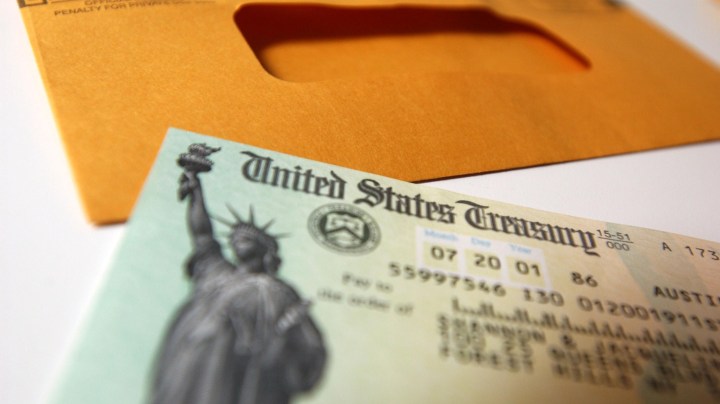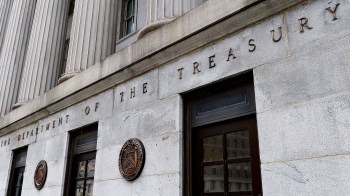
What you need to do to get your COVID-19 stimulus check
What you need to do to get your COVID-19 stimulus check

Update: This story originally published on March 31. Late Wednesday, April 1, the Treasury Department announced that Americans who receive Social Security do not have to file a “simple tax return” in order to receive a stimulus check from the federal government. Those individuals will receive the checks automatically. This reversed an earlier statement from the IRS.
The IRS and Treasury Department say they’ll start sending COVID-19 economic impact payments in the next three weeks. These are the checks to individuals and families included in the latest coronavirus aid package passed by Congress and signed by the president.
Marketplace’s Nancy Marshall-Genzer has the details on how this money will get out. The following is an edited transcript of her conversation with the Marketplace Morning Report’s David Brancaccio.
Nancy Marshall-Genzer: If the IRS has your direct deposit details, you don’t need to do anything. The IRS will use the information from your 2019 tax return, or your 2018 return if you haven’t filed for last year yet.
David Brancaccio: But what if the IRS doesn’t have your bank information?
Marshall-Genzer: So, if you did file a tax return but got a refund or paid the IRS by a paper check, or if your direct deposit information has changed, you’ll need to get your bank details to the IRS. The agency says it’s developing what it calls a “web-based portal” where you can upload your direct deposit information.
Brancaccio: And who’s eligible for these payments?
Marshall-Genzer: Taxpayers within income limits, but also people who don’t normally owe taxes: seniors, low-income individuals and people with disabilities. They need to file what the IRS calls a “simple tax return.” That includes their filing status, dependents and direct deposit information. Individuals will get the full $1,200 payment if their adjusted gross income is below $75,000. That goes up to $150,000 for married couples. Parents get $500 per child. After those income thresholds, the payments phase out.
Check IRS.gov for the latest information. The FAQ page is here.
There’s a lot happening in the world. Through it all, Marketplace is here for you.
You rely on Marketplace to break down the world’s events and tell you how it affects you in a fact-based, approachable way. We rely on your financial support to keep making that possible.
Your donation today powers the independent journalism that you rely on. For just $5/month, you can help sustain Marketplace so we can keep reporting on the things that matter to you.


















